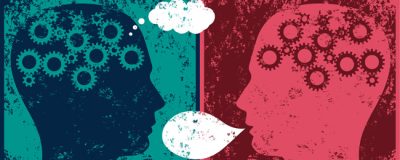Enlightenment Is Successful When People’s Consciousness Can be Changed
People will act tomorrow the way they think today

All Global Research articles can be read in 51 languages by activating the Translate Website button below the author’s name.
To receive Global Research’s Daily Newsletter (selected articles), click here.
Click the share button above to email/forward this article to your friends and colleagues. Follow us on Instagram and Twitter and subscribe to our Telegram Channel. Feel free to repost and share widely Global Research articles.
***
Introduction
At a time when humanity is threatened with annihilation through the use of nuclear bombs, we are more dependent than ever on independent and courageous intellectuals to enlighten people, to teach them what is truth and what is a lie.
However, this enlightenment can only be successful or effective if it reaches people’s consciousness, i.e. their attitudes and appeals to their emotions. Otherwise, as pure information, it only remains on the surface. A few examples will illustrate this.
One problem is that people are not aware of individual and collective prejudices and therefore cannot be held accountable.
In order to be able to give up these prejudices, they must be made conscious through psychotherapy. This is possible at any time.
Cleansing Individual and Collective Prejudices
As a psychologist, I agree with my teacher Friedrich Liebling, who commented on the problem of enlightenment half a century ago:
“Politics is prepared in people’s minds and hearts; people will act tomorrow as they think today, which is why enlightenment is a concern whose importance cannot be overestimated.
The purpose of Enlightenment endeavours is to purify human consciousness of individual and collective prejudices.
The future of our culture will essentially depend on whether there will be enough ‘enlighteners’ who will be able to remove from the prepared masses those prejudices that are the ideological background of humanity’s catastrophes.” (1)
Individual Prejudices
One common prejudice, for example, is that people are “not good to deal with”. This means that people are not good or social and that we should therefore be afraid of them. However, this attitude – like many other prejudices – has its origins in childhood. A violent upbringing by parents and teachers can lead to a child slowly developing this negative view of other people. It is usually “dragged along” into adulthood and the person then acts accordingly.
In reality – as the results of psychological research show – humans are by nature social, peaceful and rational creatures who like to socialise with others. This talent is not innate, but is acquired in childhood and can therefore be encouraged at any time.
Individual prejudices are often also collective prejudices.
Collective Prejudices
Collective prejudices, which are found in the majority of a society and lead to human catastrophes, are well known from the time of colonisation, from the two world wars and also from the current wars in Ukraine and the Middle East and therefore do not need to be listed in detail. They are always seen and used by the political “elite” as a “tried and tested” means of instigating wars against another people.
Raising Awareness Through Psychotherapy
As already mentioned, it is a problem that people are not aware of their prejudices and therefore cannot be held responsible for their devastating consequences.
One exception is the actions of unscrupulous, powerful “world leaders”, who are well aware of the prejudices and use them “profitably” against the people.
To ensure that enlightening information does not live a shadowy existence on the surface of human consciousness, it is necessary that both individual and collective prejudices are made conscious in psychotherapy.
Only when a person’s emotional life can be addressed will they be able to question and abandon the prejudices they have been made aware of in their relationship of trust with the psychotherapist. As a result, he will begin to feel, think – and act – in accordance with his nature (2).
*
Note to readers: Please click the share button above. Follow us on Instagram and Twitter and subscribe to our Telegram Channel. Feel free to repost and share widely Global Research articles.
Dr Rudolf Lothar Hänsel is a school rector, educationalist and qualified psychologist. After his university studies, he became an academic teacher in adult education. As a pensioner, he worked as a psychotherapist in his own practice. In his books and specialist articles, he calls for a conscious ethical and moral education of values as well as an education for public spirit and peace. He is a regular contributor to Global Research.
Notes
(1) Hänsel, Rudolf (2023). Making the results of psychological research your own! Insights from an encounter with the psychologist Friedrich Liebling and his liberal psychotherapy. Gornji Milanovac
(2) A. a. O.

